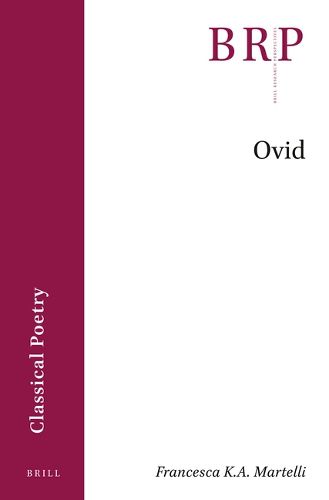Readings Newsletter
Become a Readings Member to make your shopping experience even easier.
Sign in or sign up for free!
You’re not far away from qualifying for FREE standard shipping within Australia
You’ve qualified for FREE standard shipping within Australia
The cart is loading…






In this volume, Francesca Martelli outlines some of the main contours of recent, current and future research on Ovid. Her study looks back to the rehabilitation of Ovid’s oeuvre in the 1980s, and considers the post-modern aesthetic prerogatives and post-structuralist theoretical concerns that drove the critical recuperation of his poetry throughout that decade and in the decades that followed. But it also looks forward, by considering how the themes of this poet’s oeuvre answer to a variety of new materialist concerns that are now gaining currency in the humanities and social sciences. It highlights the ecopoetic sensibility of the Metamorphoses, for example, and unpacks the environmental narratives that this poem yields when read in dialogue with the discourses of critical posthumanism. And it closes by considering the hauntological aesthetics of Ovid’s exile poetry as a comment on the effects of the principate on time, space, media, and art.
$9.00 standard shipping within Australia
FREE standard shipping within Australia for orders over $100.00
Express & International shipping calculated at checkout
In this volume, Francesca Martelli outlines some of the main contours of recent, current and future research on Ovid. Her study looks back to the rehabilitation of Ovid’s oeuvre in the 1980s, and considers the post-modern aesthetic prerogatives and post-structuralist theoretical concerns that drove the critical recuperation of his poetry throughout that decade and in the decades that followed. But it also looks forward, by considering how the themes of this poet’s oeuvre answer to a variety of new materialist concerns that are now gaining currency in the humanities and social sciences. It highlights the ecopoetic sensibility of the Metamorphoses, for example, and unpacks the environmental narratives that this poem yields when read in dialogue with the discourses of critical posthumanism. And it closes by considering the hauntological aesthetics of Ovid’s exile poetry as a comment on the effects of the principate on time, space, media, and art.